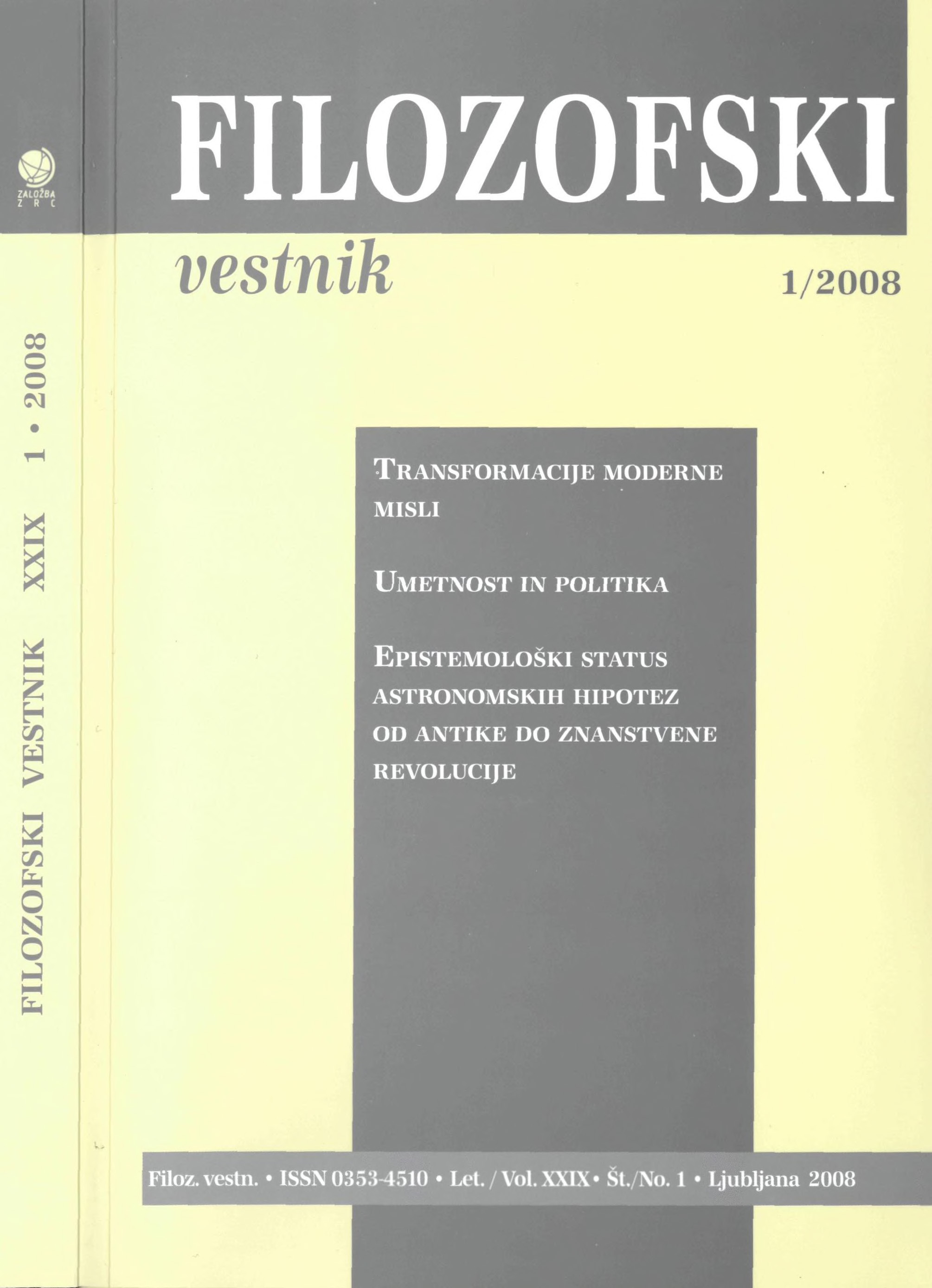Postkolonialna tveganja: umetnost in nacionalne nemožnosti
Ključne besede:
umetnost, država, nacionalno, postkolonializemPovzetek
Razprava razmišlja o tem, kako umetnost kot nakazovanje modernosti proizvaja diskurz o reprezentaciji, posebej o tem, kako je zmožna predstavljati družbeno stanje in težnjo, ki to stanje znotraj postkolonialne zgodovine presega. V kontekstu Jugovzhodne Azije umešča ta premislek umetnost v spremenljive kategorije postkolonialnega in razvijajoče se nacionalne države, ki je zahtevala raven modernosti, da bi se na prvem mestu osvobodila od kolonializma in da bi na dolgi rok to svobodo zbrala pod pokroviteljstvom nacionalne države, ki jo je v času hladne vojne krmarila vojaška diktatura kot v primerih Indonezije in Filipinov. Kjer ni bilo kolonializma, kot na primer na Tajskem, si je moral narod sam pomagati s triki spretne politike, ki jih je uporabljala kraljevina. V tem procesu je bil osrednjega pomena imperativ demokratične tradicije, na katero se je gledalo kot na predpogoj za prehod v moderno družbo svobodne trgovine, liberalne vlade in svetovljanskih teženj. Narodotvornost je konstruirala mite o skupni identiteti na eni strani in revoluciji na drugi, fantazije, ki so jih prekrižala razburkanja avantgarde. Narod je tako postal nemožen, zgolj nakazan ali hrepeneč prek intimnosti, toda nikoli polno realiziran, in je s tem spodbujal teorijo spodletelih držav ali spodletelih kolonializmov znotraj evroameriške perspektive.Prenosi
Podatki o prenosih še niso na voljo.
Prenosi
Objavljeno
2016-03-05
Kako citirati
Flores, P. D. (2016). Postkolonialna tveganja: umetnost in nacionalne nemožnosti. Filozofski Vestnik, 29(1). Pridobljeno od https://ojs.zrc-sazu.si/filozofski-vestnik/article/view/4417
Številka
Rubrike
Umetnost in politika
Licenca
Avtorji jamčijo, da je delo njihova avtorska stvaritev, da v njem niso kršene avtorske pravice tretjih oseb ali kake druge pravice. V primeru zahtevkov tretjih oseb se avtorji zavezujejo, da bodo varovali interese založnika ter da bodo povrnili morebitno škodo.
Podrobneje v rubriki: Prispevki





